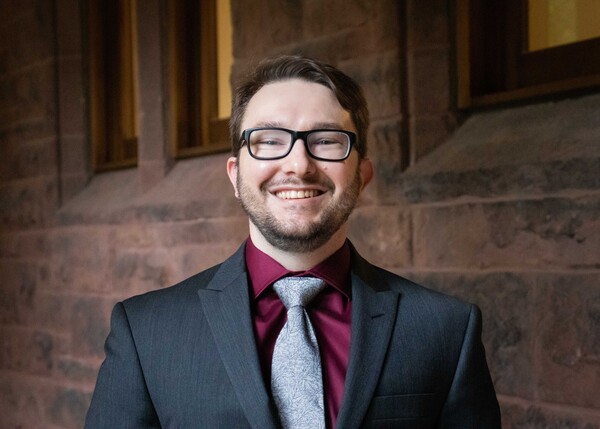Alex Boshart, Institute of Medical Science

Supervisor:
Dr. Ana Konvalinka; Department of Nephrology at Toronto General Hospital
Research Title:
The Effect of LGALS1 on Antibody Mediated Rejection in Kidney Allografts
Description of your research:
Kidney transplantation is the optimal treatment for end stage kidney disease; however, most grafts fail prematurely, due to antibody mediated rejection (AMR). AMR is caused by donor-specific antibodies (DSAs) that target Human Leukocyte Antigens (HLA) of the graft. DSA ligation of its target HLA induces endothelial injury via ligation to its target HLA class I and II. Endothelial cells of the graft do not express HLA class II at baseline, but expression can be induced through proinflammatory stimuli. In addition, glomerular and tubular basement membranes (BM) become injured in chronic AMR. The pathophysiology of AMR is nevertheless incompletely understood and there are no effective treatments.
Using unbiased proteome analysis, our lab identified LGALS1, an extracellular matrix-associated protein involved in regulatory immune functions, to be increased in the glomeruli of AMR patients. My research involves modelling AMR in vitro and determining the effects of LGALS1 on AMR in renal endothelial cells.
Why did you choose this department:
I chose this department because the Institute of Medical Science (IMS) is a fantastic bridge between research and clinical practice. When I first arrived here several years ago, I had my mind set on becoming a physician. However, with the scope of research that is being conducted in the IMS, I have come to realize that there are many more opportunities to help people and the community other than being a physician.
How was your experience looking for a research opportunity:
I was very lucky with how everything turned out for me. I was accepted to IMS for the fall 2019-2020 school year, but I could not find a supervisor in time to start in September. I was reaching out to many supervisors but since I applied and was accepted in the summer many supervisors had already found students for the fall. Dr. Konvalinka and I started communicating in September and decided that I would do a placement in the lab starting in October. After enjoying my four-month tenure in the lab I officially started my master's with Dr. Konvalinka as my supervisor in January 2020.
When did you start your research experience:
I first started research in 2017 at Wilfrid Laurier University, where I was an undergraduate student volunteer in Dr. Elieen Wood’s developmental psychology lab. It was an amazing experience to hone my critical thinking and problem-solving skills that I put to good use now in a completely different field of science. I did a 180 turn from clinical psychology to basic science in 2019 when I joined Dr. Konvalinka’s lab.
Why did you choose this supervisor:
It was very important to me to have a supervisor who was a clinician scientist. Just like IMS as a department, a clinician scientist can act as a bridge between research and clinical practice. Dr. Ana Konvalinka is an incredible clinician and researcher; she is challenging yet fair and very knowledgeable. During my fall placement I found that her style of teaching connected well with my style of learning.
What’s your experience with research:
Research is challenging but also extremely rewarding to me. I love the feeling of finally figuring out a problem after tackling it for a long time. Learning new techniques and protocols, as well as getting experiments to finally work are some of my favourite parts of research.
How’s the social experience with research:
Socializing is hard with research as everyone is very focused on their projects. However, everyone in the Konvalinka lab is extremely nice and very collaborative. I have also been involved with the Institute of Medical Science Students’ Association (IMSSA) since I arrived at the University of Toronto. I have acted as both a site director in my inaugural year and as the Vice President of External Affairs for IMSSA this past year. In my time with IMSSA I have met many great students across many of the University of Toronto research sites and formed lasting friendships. I have also made great connections as both a mentor and mentee in the IMS Peer2Peer Mentorship program. In this program upper year graduate students answer questions and provide guidance to new students. I know a lot of cases where mentors and mentees stay friends beyond the program.
What’s your future career plans:
I believe my future is always in flux. There is so much I still don’t know and so many opportunities in the science field at large. I will be happy as long as I am continually learning and contributing to the scientific field.
Quote:
“Get busy living, or get busy dying” - The Shawshank Redemption,
To me it means live your life while you’re in it. Do not put life on hold until after you’ve “achieved” something, be it graduate school or medical school, live it right now.
Tip:
I know it is easier said than done, but do not compare yourself to your peers. Everyone’s journey is different with different challenges and successes. Your only competition is who you were yesterday.